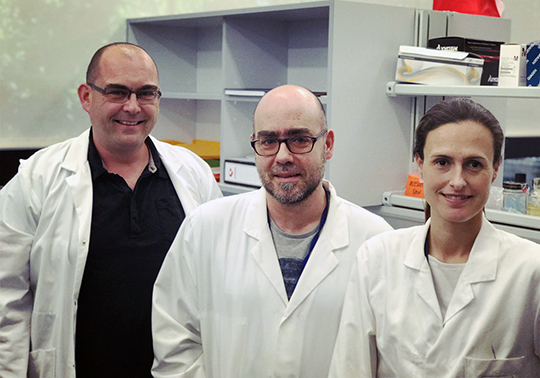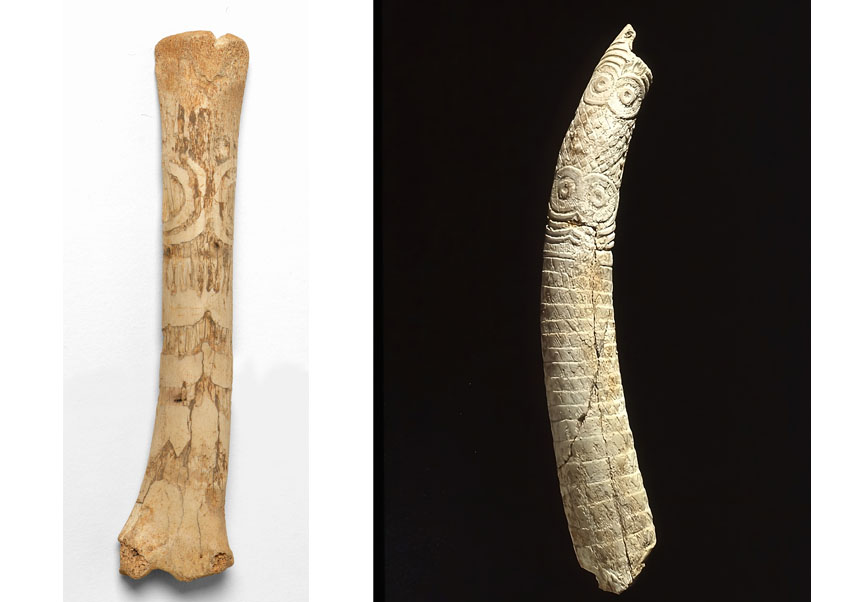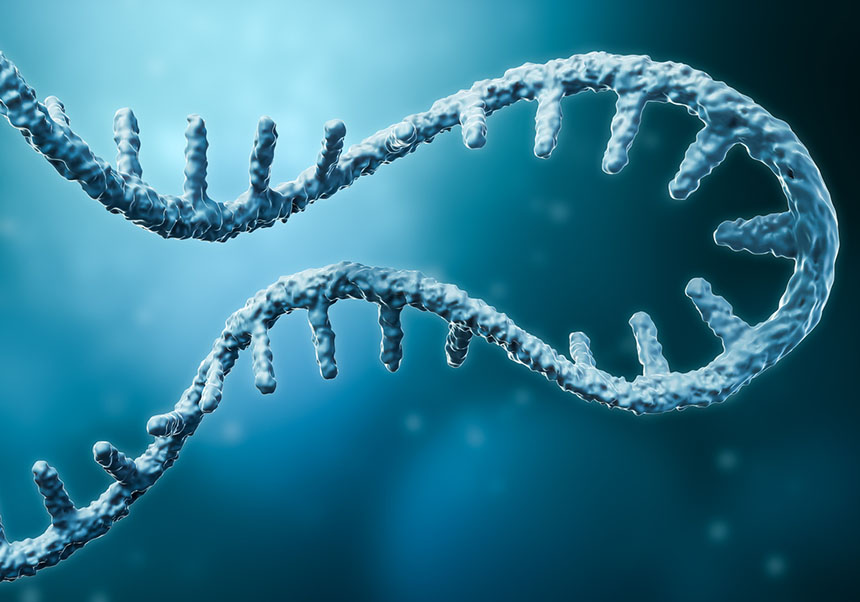A research reveals that genetic factors and the gut microbiota have influence in the viral gastroenteritis
- April 19th, 2017

A research of the Department of Microbiology and Ecology of the Universitat de València and the Institute of Food Agrochemistry and Technology of the CSIC considers that the genotype of the gene FUT2, the gut microbiota and the susceptibility to infection are key interrelated factors of the viral gastroenteritis caused by rotavirus and norovirus. The results, published in the journal ‘Scientific Reports’, suggest that biomarkers such as ‘Akkermansia muciniphila’ bacteria could improve the effectiveness of the vaccines against this illness.
The work carried out reveals that the infections caused by principal enteric viruses (those who affect the intestinal tract); in other words, rotavirus and norovirus, depend on genetic factors of the host as well as the human gut microbiota. “Our work has the aim of improving the prevention strategies against those viruses, which produce annually thousands of deaths”, claims Jesús Rodríguez, researchers of Ramón y Cajal of the Faculty of Medicines of the Universitat de València and coordinator of the published research.
In the case of rotavirus, there are available vaccines since 2006, but currently there is no vaccine for norovirus. “In the case of the vaccine for rotavirus, some cases of errors in the vaccination have been detected. This can be derived from the composition of the microbiota of the patients”, according to the researchers of the Department of Microbiology and Ecology.
According to Rodríguez, “works like ours can allow the detection of biomarkers, in our case the Akkermansia muciniphila bacteria, related to the infection by rotavirus and could be used to improve the health in humans. A hypothesis that we are considering is to know whether the strategies addressed to increase the proportion of this bacteria could improve the effectiveness of the vaccine”.
The researchers of the UV and CSIC have been studying for many years the microbiota and probiotic food such as coating agents against viral diarrhoea. However, different results have proved in vitro and in animals that the microbiota can cause rotavirus and norovirus infection. This fact has lead the research group to look for the relationship between microbiota, genes and viruses in humans.
The rotavirus and norovirus infections are the main cause of viral gastroenteritis in the world. The rotavirus infections are the leading cause of diarrheal death in children under the age of 5, according to the data of World Health Organization (WHO). The noroviruses produce acute diarrhoea in people of all ages and are the main viruses transmitted by food.
Joint research
The research has been carried out in collaboration with the Enteric Virus Laboratory of the Department of Microbiology and Ecology of the Faculty of Medicine and Dentistry of the Universitat de València and the Laboratory of Probiotics and Prebiotics of IATA of the CSIC. In this research, massive sequencing strategies, bioinformatic analyses and human genetic studies have been used.
The research group in viral gastroenteritis has several lines of research focused on the study of molecular epidemiology of enteric viruses, pathogenesis and immune response of the enteric virus infections and the interactions virus/host. This study is within this last research line.
Article:
Rodríguez-Díaz J, García-Mantrana I, Vila-Vicent S, Gozalbo-Rovira R, Buesa J, Monedero V, Collado MC. «Relevance of secretor status genotype and microbiota composition in susceptibility to rotavirus and norovirus infections in humans» Sci Rep. 2017 Mar 30 Doi: 10.1038/srep45559.
















